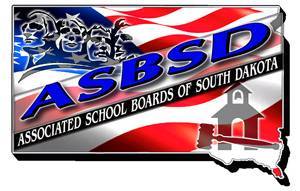School board members representing South Dakota’s public districts could see limitations to their advocacy efforts that other elected officials throughout the state do not have placed on them.
Senate Education committee members voted 4-2 to pass an amended version of Senate Bill 134, which would prohibit the use of public school resources to advocate for an outcome in any partisan election or legislative vote.
ASBSD opposes the bill.
ASBSD Executive Director Wade Pogany cited a U.S. Supreme Court ruling in favor of public officials’ right to express themselves on public matters and testified the bill would limit the efforts of school board members “in a significant way” that other publicly elected officials are not subject to.
“We’d set up a hierarchy of elected officials,” Pogany said.
An amendment to the bill changed language to hone in on legislative votes and partisan elections compared to any political vote, which was included in the initial version, but an additional amendment simply cited different public school resources and did not change the initial intention that prohibited the use of public school resources.
Those public school resources could include the board room, school building or state provided K-12 email, among others, that board members, and other district staff, would be unable to utilize to advocate for the improvement of public education in the state and their district.
The impetus for the bill stems from last year’s advocacy efforts by those in public education in support the half-cent sales tax increase, which increased teacher salaries.
“I found it greatly disturbing,” Sen. Lance Russell, the bill’s prime sponsor said, adding the bill was brought “in reaction to a lot of political activity” from last year.
“What we want to do is discourage this type of behavior.”
Sen. Russell noted he did not wish to “impact school board members.”
However, Pogany said SB 134 limits a board members “ability to govern” and the implications within “stifles” their advocacy efforts.
Sen. Troy Heinert said the decisions made by the legislature have a big effect on education and legislators “reach out” to educators for their opinions on legislation.
SB 134 now moves to the Senate floor for review and vote.
For updates, check the ASBSD Blog, Twitter feed and Bill Tracker page.
